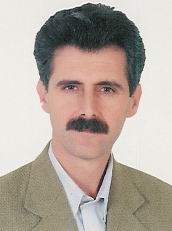Norman Borlaug Centennial Q&A's with Experts:
If Norman Borlaug posed the following questions to you... what would you tell him?

"Earth does not belong to a particular generation."
Goodarz Najafian, Ph.D., Wheat Breeder and Director General,
Seed and Plant Improvement Research Institute (SPII), Karaj, Iran
Q. What’s the one thing – the single most important – that we need to address to solve food insecurity?
A. In my idea it is definitely changing the mind of our politicians to plan for enough investment in agriculture rather than any other thing. Geographic borders are [a] problem for food distribution and food security, [and] they have to help scientists to cross borders and work at [a] regional and international level. Environmental friendly strategies and policies should be undertaken to save the earth and to assure sustainability of agricultural systems.
Q. Do you think we can feed 9 billion people by the year 2050? If so, why? If not, why not?
A. I think if [the] international community wake[s] up from the wrong walking, it will be possible, but if non-sustainable programming and putting pressure on the natural resources continues, it will be not possible. If we look at the environment, we have destructed it. Soils are tired and over-extracted water resources have been used out of water circulation regulations. Industrialization, manufacturing of thousands of machines every day is against earth['s] nature. Urbanization and delivering huge amounts of garbage to nature are some of [the] witnesses of that destruction. [The] international community needs to act very fast before it gets [too] late for saving the production systems and avoiding of agricultural lands left. [The] very huge amount of money and big budgets used for military purposes should be used for conservative agriculture, education, health improvement and tourism and international friendship (dialogue among civilizations).
Q. Where are the biggest gaps right now in the food system?
A. The main problem and the biggest gap is lack of agronomy knowledge among farmers [so] they cannot bring to reality the genetic potential of improved varieties. Also, distribution of food is biased and this is due to geographic borders. In many parts of the world huge amounts of food are lost and become garbage while in other parts many people cannot find the basic needs to live by.
Q. What’s one piece of advice you would give to young people?
A. Think about [the] future of the earth and coming generations and plan in such a way to consider those generations. Earth does not belong to a particular generation and in [the] future we will be criticized about our behavior, our policies, our strategies and our faults. Young people should walk and go ahead with more thoughts and environment[ally] friendly programming.
Q. How would you explain what you do, and why it’s important, to a 10-year-old?
A. I explain the story of [the] food collection of ants, which need to survive during winter and I would say they must thank The God, nature and farmers who produce those grains, and I would say we are there to help farmers to produce enough food.


